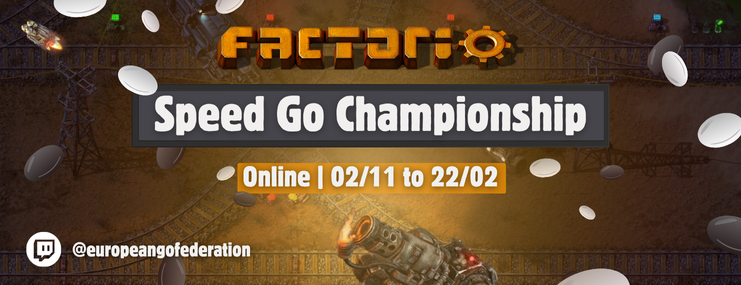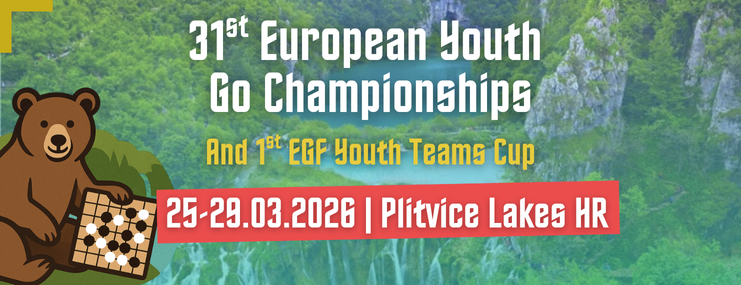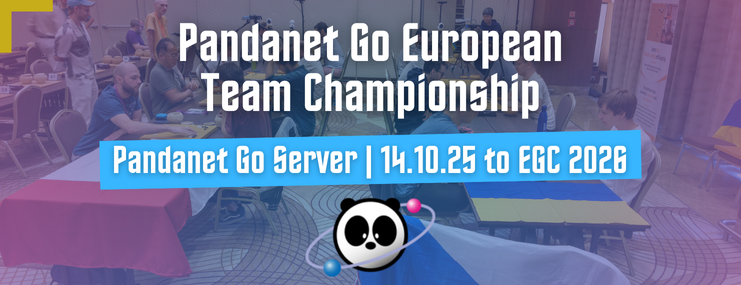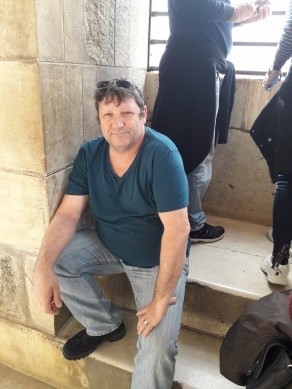Our first live meeting was in Seoul where she played in the first round of the Samsung Fire & Marine Insurance World Masters Baduk 2018 - Preliminary.
After she finished we had a nice talk and we met in BIBA where I was able to interview her and play a few moves during the interview.
Which tournaments contains the best memories for you?
The Heng Chang Cup 2000 where I played as a teenager, being only 2p, playing in the finals against Rui Nawei who was at that time the strongest female player. I lost the match 2-1 after winning the first game.
And the second one is the first time I won the Female Kuksu Title, in 2003.
Who was your toughest opponent?
Of course this is/was Rui Nawei, who was accepted as a Female Professional in the KBA, meaning that she could play in the Korean Tournaments. At that time Rui Nawei was 2 stones stronger than the strongest females in Korea. We played many title matches which were mostly won by Rui Nawei.
I and all other Korean female go players learned a lot from her in that time. She had a big impact on us, making us stronger day by day.
What player from the past would you like to meet and play against?
And what would you like to ask him?
I would like to meet Dosaku, to me the strongest player ever.
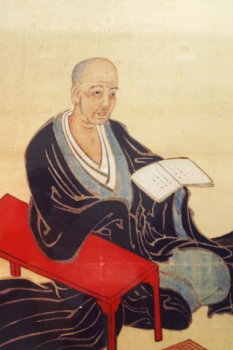
Honinbo Dosaku, Meijin Godokoro
(more in formation can be found in Wikipedia and Sensei's Library)
By the time he was 32, he was already head of the Hon'inbō school and placed at the top of the official hierarchy. It has been suggested that the true level of his playing strength was never really tested, given the distance between him and his nearest rivals. The evidence of his contributions is in the legacy of games, known to us by the kifu records.
Two of his famous games are the Jan. 5th, 1684 defeat by one point in a two-stone game (his "life-time masterpiece") and the 1670 castle go game when his opponent opened at tengen, the central point, which was a victory. These were both against members of the Yasui house. Over 150 games of his are known.
(more in formation can be found in Wikipedia and Sensei's Library)
By the time he was 32, he was already head of the Hon'inbō school and placed at the top of the official hierarchy. It has been suggested that the true level of his playing strength was never really tested, given the distance between him and his nearest rivals. The evidence of his contributions is in the legacy of games, known to us by the kifu records.
Two of his famous games are the Jan. 5th, 1684 defeat by one point in a two-stone game (his "life-time masterpiece") and the 1670 castle go game when his opponent opened at tengen, the central point, which was a victory. These were both against members of the Yasui house. Over 150 games of his are known.
He has something in common with AI, he saw so may things on the board. To him also the center was very important.
I would like to ask him how he would approach Tengen in his style.
What are your goals in go?
To better categorise my ideas and to learn more.
And to spread go, so that more people become more interested in go, to learn and discover more. And so overcome the differences in culture.
In Korea the winners get a lot of respect, losers get no respect. And so the result becomes more important than the game, this should change.
Professionals should change and become more extrovert so as to be able to teach others more about the game. Communication should be improved so that the contact with European players can be improved.
What would you advise players who would like to become professional?
Be greedy, learn more and win more.
After this interview we had a good dinner and a small party in a karaoke bar.





